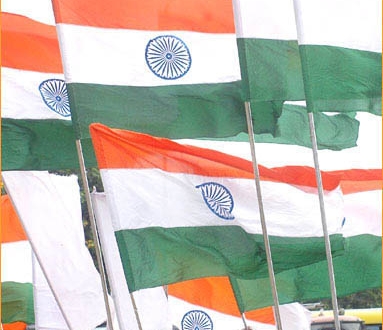Agnes Swati Saha speaks to some young people to find out what Independence means to them.
“He who defines duty for himself, is his own master.” – Anonymous
These quoted words may be anonymous but represents what the youth in India perceive Independence as. This twelve letter word ‘Independence’ is not only confined to 15th of August or the 26th of January, but also throughout the twelve months of a year, 24×7. August 15, 1947- the year that freed our country from the shackles of colonialism, gave birth to a good number of valiant freedom fighters and the year when our forefathers, not us witnessed history being made. What independence means to them is not the same what it means to us. The scenario between independence, then and now has changed. It’s hard to find the same streak of patriotism.
Today’s youth do show respect when the tri-colour flag is hoisted or the national anthem is being sung, yet the spirit of patriotism which was so very strong during yesteryears is not the same these days. This is because with time the meaning of independence has taken a new form. It is different for every individual. Everyone has a unique take on it.
 Independence now, to the youth of the nation is freedom of expression, doing what you believe in and chasing your dreams with confidence, freedom of the mind, soul and heart, a feeling of liberation, self dependence, etc. Literally the word deals with freedom, to be free but means free yet having the responsibility.
Independence now, to the youth of the nation is freedom of expression, doing what you believe in and chasing your dreams with confidence, freedom of the mind, soul and heart, a feeling of liberation, self dependence, etc. Literally the word deals with freedom, to be free but means free yet having the responsibility.
On the other hand, some have split the word into ‘independence’ and have expressed that we are always in dependence of something or the other. For instance, Independence day is around the corner and why is it only on August 15 or January 26 that we feel Indian? Why does the pride and patriotism towards our motherland only come out during an India-Pakistan cricket match? Why does the sudden realization of being Indian occur to us only when we watch movies like Rang De Basanti, Chak De India, etc.? Why do we need something to hold onto, in order to prove what we are? Why are we dependent on certain things to prove that we are independent Indians?
Avinash Raj, an engineering student from Bengaluru gives us a different outlook to Independence. “How often do we think about the pain and sacrifice that has gone into obtaining this freedom that we are enjoying, other than while studying about it in history class? To be honest I never do. Independence to me means nothing. Being proud of my country on Independence Day and on Republic Day every year has become more than a habit now. However, this needs to change and fast.”
“Independence means to be able to express yourself and emotions freely without any fear or apprehensions- I do the same with my choreography,” believes Tandra Dey Sarkar, a student from Kolkata.
Ranak Mann, 19, of Delhi relates India’s independence to his personal independence. He says, “To me it means the freedom to do what I want without thinking of anything and believing that no one can control the freedom of expression and creativity that I portray through my art and craft works. I feel free to express myself in Facebook, Orkut, Twitter, Blogs, etc. I have the option to choose and make new friends from different networks. No one can control my thoughts & actions but myself.”
With different sort of views and perceptions coming from the youth, Deblina Chakrabarti, a Jadavpur University student gives us a fair idea of a thinking man’s perception of freedom, “Independence of India from a common man’s point of view is not only the sense of belonging but a sense of contribution and existence in every step that our nation takes.” She also believes,”We constitute our nation, it does not constitute us. Independence is not our right to express but our right to be heard. Independence is not only smart politics, but being part of a smarter public.” Lastly she makes a vital point in saying, “Independence of our nation is not what we feel, but what we make of it and most importantly, Independence is not about rights, but our duties towards the nation.”
Akshata Samant, an aspiring filmmaker believes, “We are independent on a scrap of paper, but not independent in the mind. It may be easy to say that we are the world’s greatest democracy and yet not believe in it. We follow the western trends and feel proud, making our minds greatly dependent on the thinking of the West and believing that we are ‘modern’. If we were truly independent, why would most of our country’s major decisions be governed or influenced by various external factors? What good is it to be independent as a nation, if the mind is a prisoner?”
After a variety of view points and opinions it is clear & evident what independence means to the youth and it has risen to another level altogether. It no more means an independent India only, but an independent Indian- an individual.
The yout h f e e l s and celebrates this independence in education, gender, career, sex , communication, expression, art, literature, thoughts, religion, caste, culture, technology, politics, etc. This feeling is surely precious & priceless. Experiencing freedom without having to own it. Realization of values & not imposition is the need of today’s youth. This need is to be heard, given priority¬ ignored. Thus, the true essence of independence shall reflect.






